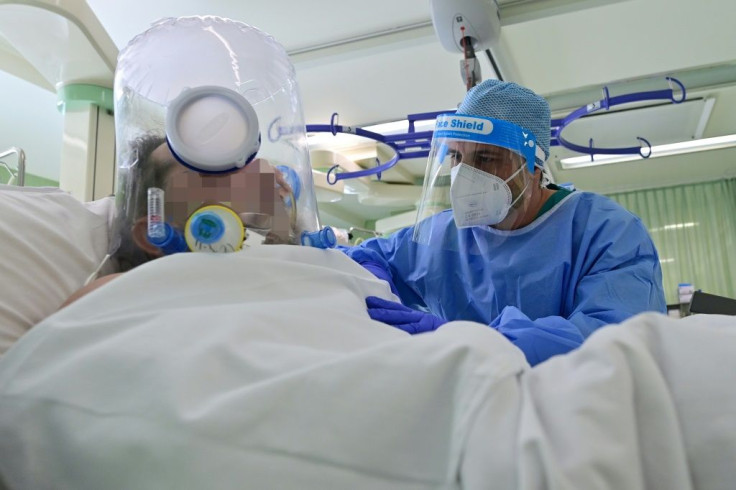Omicron Update: Case Count, New Variant 'Offshoot,' Vaccine Effectiveness, And More
As Omicron continues to take hold across the globe, more information is starting to surface about the coronavirus variant.
Since Omicron was first identified in South Africa and declared a “variant of concern” by the World Health Organization on Nov. 26, it has been detected in at least 50 countries, including the U.S.
The U.S. has confirmed cases of the Omicron variant in at least 19 states, the Centers for Disease Control and Prevention said on Tuesday in a White House coronavirus briefing.
Professor Neil Ferguson of Imperial College told The Times newspaper in the U.K. Tuesday that early data suggest Omicron cases are doubling at least every “three days.” Pfizer CEO Albert Bourla told The Wall Street Journal that he expects the number of confirmed Omicron cases to surge from dozens to millions over the next few weeks.
It is unclear how transmissible the variant is, but early signs indicate that it may spread rapidly. It is estimated that it will surpass the Delta variant as the dominant COVID strain in a matter of weeks, experts have said, especially as winter sets in, CNBC reported.
Scientists are scrambling to understand Omicron, as well as its symptoms, which early reports have indicated thus far, are “mild.”
The South African doctor who sounded the alarm on the first cases of Omicron said she saw “extremely mild” symptoms among her patients, which included fatigue and a “scratchy throat.” No cough or loss of taste or smell – symptoms common with previous COVID-19 strains – were reported.
Dr. Anthony Fauci, the leading infectious disease expert in the U.S., told CNN on Monday that preliminary data on Omicron was “a bit encouraging.” He maintained that while it was too soon to make a determination about the variant, it didn’t seem to have a “great degree of severity to it.”
Other indications show that fewer patients are requiring oxygen or intensive care in South Africa, which was necessary with other strains of the virus, CNBC said.
A top concern for health officials is the effectiveness of vaccines against the Omicron variant. Moderna and Pfizer said they are testing their COVID vaccines against the variant with the possibility, if necessary, of releasing a reformulation of the shot in early 2022.
A preliminary study conducted of the Pfizer-BioNTech COVID vaccine released on Tuesday showed that the Omicron variant reduced the antibody protection of the shot. However, those people that received a booster dose would likely have additional protection from severe disease, according to the study.
Compounding the Omicron situation is the presence of another mutation of the variant, B2.A, that could evade COVID PCR testing due to the drop of the S gene, which may make it harder to track.
According to the Financial Times, the cases of the offshoot of the Omicron variant have been detected in South Africa, Australia and Canada.
An overseas traveler from Nigeria is currently in a Cairns hospital with the Omicron variant of COVID-19.
— Queensland Health (@qldhealth) December 8, 2021
Another overseas traveler from South Africa is currently in a Brisbane hospital with an ‘Omicron Like’ variant of COVID-19.

© Copyright IBTimes 2024. All rights reserved.











